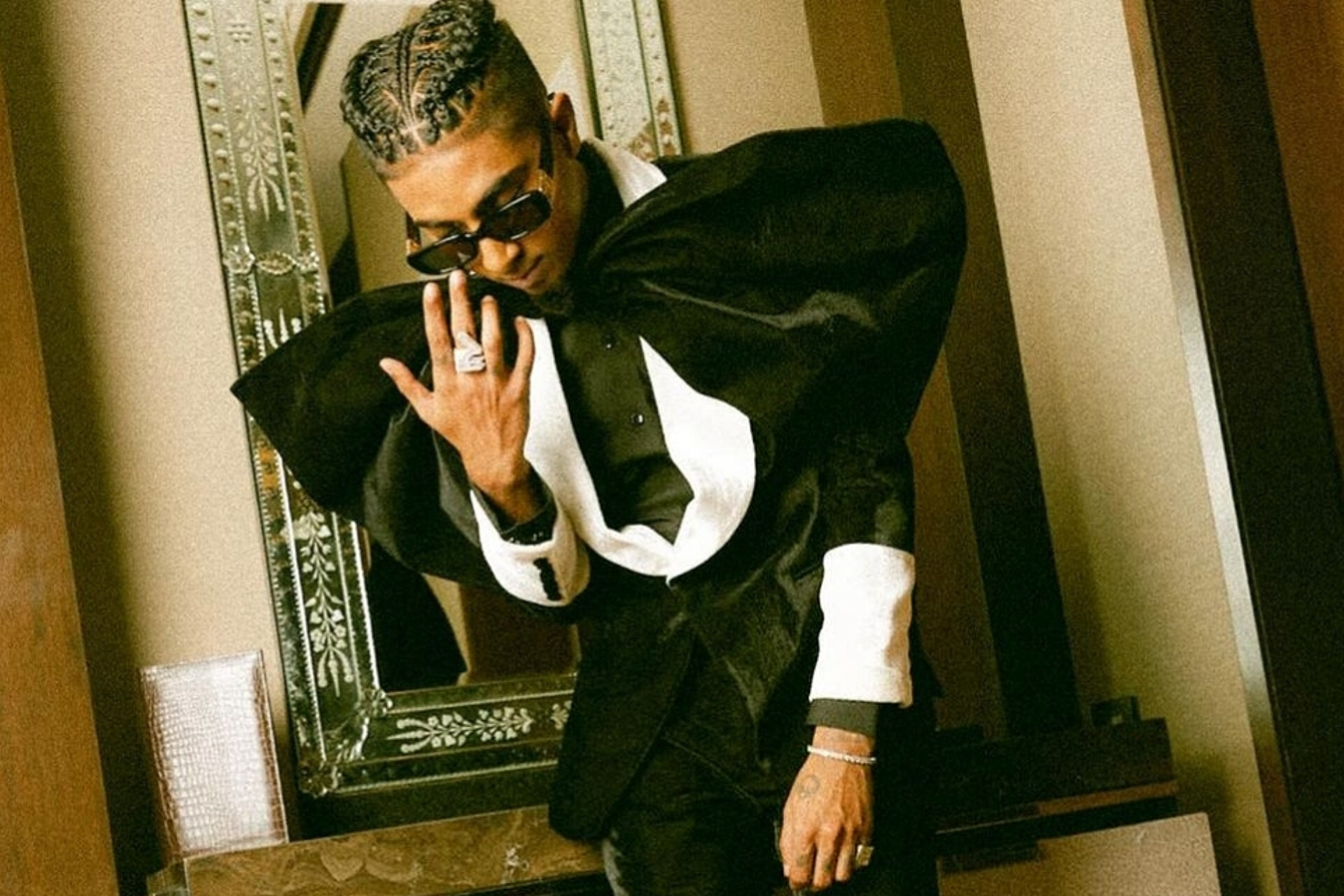How a Pune kid flipped the script and rewrote the rules of Indian rap

MC Stan. Photo: courtesy of the artist's Instagram.
MC Stan turns 24, and it’s only fitting that we take a moment to celebrate his incredible journey. This real rags-to-riches story has propelled Stan from a nobody to one of the most influential voices in Indian hip-hop today.
From riding in rickshaws to cruising in imported cars, and from the streets of Pune to becoming a style icon known for his 80k sneakers, luxury watches, and a lifestyle that screams “made it,” Stan has transformed his life in ways that only a very few can imagine. But his rise to success isn’t just about the glitz and glamor, evidence instead of his raw talent, unfiltered expression, and constant hustle. Nonetheless, it’s not just about the bling—Stan’s raw talent and unapologetic attitude have set him apart—making him a force to be reckoned with in the music industry.
Celebrating his birthday—affectionately dubbed “Stanny Divas” by his devoted fans—we decided to dive into five of the most important tracks in Stan’s discography. These songs highlight the significant evolution of Stan as an artist while also serving as major milestones in his journey as a rapper. So, let’s take a closer look at the songs that shaped MC Stan into the rap phenomenon he is today and why they resonate with fans nationwide.
“Samajh Meri Baat Ko”
“Samajh Meri Baat Ko” was the first track by MC Stan to go viral, pushing him into the spotlight. Although it’s currently unavailable on his YouTube channel and isn’t officially part of his discography, the track played a crucial role in his career. It also holds a significant place in the history of Indian hip-hop as one of the first diss tracks, where MC Stan aimed Emiway Bantai, igniting the beef culture in the scene. Despite it being gone now, “Samajh Meri Baat Ko” remains momentous in MC Stan’s discography.
“Mere gharwale sochte mujhe kuch bhi nahi ata, bus yedechale lambe kapde gharse nikal jata”
“Wata”
“Wata” introduced the rapper to a wider audience. The filming, aesthetics, gang culture, and raw authenticity displayed in the music video were groundbreaking, offering something never seen before in the Indian hip-hop scene. “Wata” had it all—a gritty gangster beat, showcase of hood culture, cultural representation, ski masks, BMX bikes, dreadlocks, and relatable bars that spoke to the common people.
“Jo bhi takleef dera, usko tu khudse tu wata tu wata”
“Khuja Mat”
“Khuja Mat” was MC Stan’s diss track in response to Emiway Bantai’s “Samajh Mai Aaya Kya.” It quickly went viral, gaining steam for Stan’s rapid flow switches, brutal callouts to Emiway, and the use of extremely explicit language, which was new to the Indian hip-hop audience. Stan’s breathless acapella flow, clever references, and the one-take video concept were widely appreciated, marking a fresh approach in the genre. The raw authenticity and originality of the video contributed to its success. “Khuja Mat” now boasts over 54 million views on YouTube.
“Mere jaise soch rakhne wale nahi kider pan milre”
“Astaghfirullah”
“Astaghfirullah” is one of MC Stan’s defining tracks, as it transformed many of his haters into fans and revealed a side of his artistry that few knew existed. Known primarily for his profanity and controversial content, Stan’s music wasn’t widely appreciated. However, “Astaghfirullah” changed that perception. The song digs into the artist’s struggle for a better life, where he seeks God’s forgiveness for his wrongdoings but still feels obligated to provide for his family. This reflective and honest approach struck a profound chord with listeners, shifting their views on Stan and his sound. “Astagfirullah” also earned him the recognition of industry leaders like Raftaar, which launched him into an entirely new league therein.
“Maa ko rulaya maine kaafi, maa ko rulaya maine kaafi”
Tadipaar (The album)
One of the most influential and top-notch albums in Indian hip-hop is Tadipaar. The hype surrounding its release was immense, and it lived up to every bit of it. This seven-song record offers a raw and powerful narrative of MC Stan’s life, delving into his daily struggles, poverty, gang affiliations, time behind bars, and things in between. The title “Tadipaar,” meaning hiding and seeking shelter from the police, reflects the album’s gritty essence. Each tune comes with a cinematic music video, and together, they weave a compelling story of Stan’s life. Tadipaar not only established Stan as one of India’s finest rappers but also showcased his prowess as a producer, as he masterfully crafted every track on the album. Stan continues to make great music, but it’s hard to replicate Tadipaar’s brilliance.
“Game kara paar, aakhir kaar jaakar hua mai tadipaar”
The New Delhi artist traverses cheeky pop, R&B and rap on his fifth album, which…
The Netflix livestream will broadcast from Seoul on March 21
The pop megastar is in search of love, ecstasy, enlightenment, and all sorts of fun…
In a recent interview with Apple Music’s Zane Lowe, the musician addressed the death of…
The singer appeared on Keke Palmer’s podcast to discuss her career and the difficulties of…
From the blood-soaked hallways of Hyosan High to the chaotic streets of Seoul, the battle…